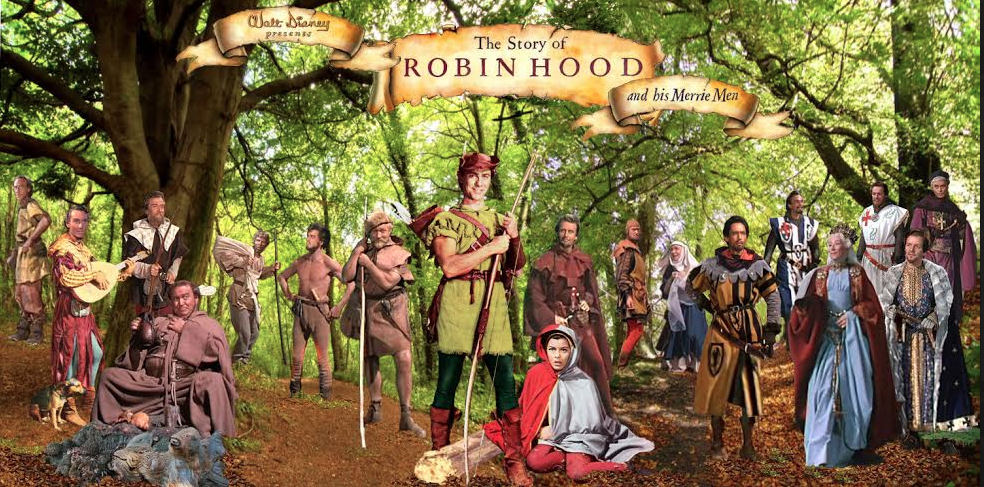Above is a screenshot from the Daily News (London) on March 14th 1952 showing Joan Rice at the London Première of Walt Disney's "Story of Robin Hood and his Merrie Men":
'There's no mistaking Maid Marian (Joan Rice) as she arrives for last night's première. Robin Hood motifs trim her tulle skirt. Her velvet bodice is in Lincoln Green, of course.
The amount of advertising and promotion that went on before and during the release of Walt Disney's Story of Robin Hood and his Merrie Men (1952) never ceases to amaze me. I have once again been delving in the newspaper archives and discovered another glimpse of the work that went on. This article appeared in Kinomatograph Weekly on March 5th 1952:
RKO’s Showmanship Link with CMA for ‘Robin Hood’ and ‘Saturday Island '
"The world premières of both ‘Robin Hood’ and ‘Saturday Island’ are to be presented by RKO-Radio, with the operation of CMA, in traditional showmanship fashion. They will be launched with publicity campaigns outstanding even in RKO showmanship.
A few days before the opening, on March 13, of Walt Disney’s ‘Robin Hood’ in Technicolor, at the Leicester Square Theatre, the Daily Graphic will start its picture serialisation and will be sponsoring a £200 competition on popular lines. It will be backed by widespread national campaigns by Kelsey Newspapers. The première, like that of the provincial opening later, in Manchester, will be in aid of the National Advertising Benevolent Society.
The BBC will serialise ‘Robin Hood’ on five successive evenings starting April 28 on the Light programme from 6.15-6.45 p.m., a time when the film will be at the height of its general release. The material will be from the sound track of the film with added matter recorded by stars Richard Todd and Joan Rice.
 |
| Joan Rice and Richard Todd |
It will also be featured on the day of the première itself, in ‘Film Time’, while Joan Rice has a special ‘Robin Hood’ spot on television’s ‘Kaleidoscope.’ Many of Britain’s large circulation magazines are also devoting big spaces to the picture tying in with its première and general release.
In addition to this editorial coverage, national advertising started last Thursday with prominent spaces in leading journals and a widespread poster campaign both in the West End and in the provinces.
National tie-ins have also been arranged with a large number of commercial houses.
Elton Hayes, the BBC man with a small guitar, who makes a film debut in the picture, will tour key presentations in the provinces."
Kinomatograph Weekly March 5th 1952
I would love to hear those recordings that Richard Todd and Joan Rice made for the BBC!
Does that episode of 'Kaleidoscope' with Joan Rice survive?


